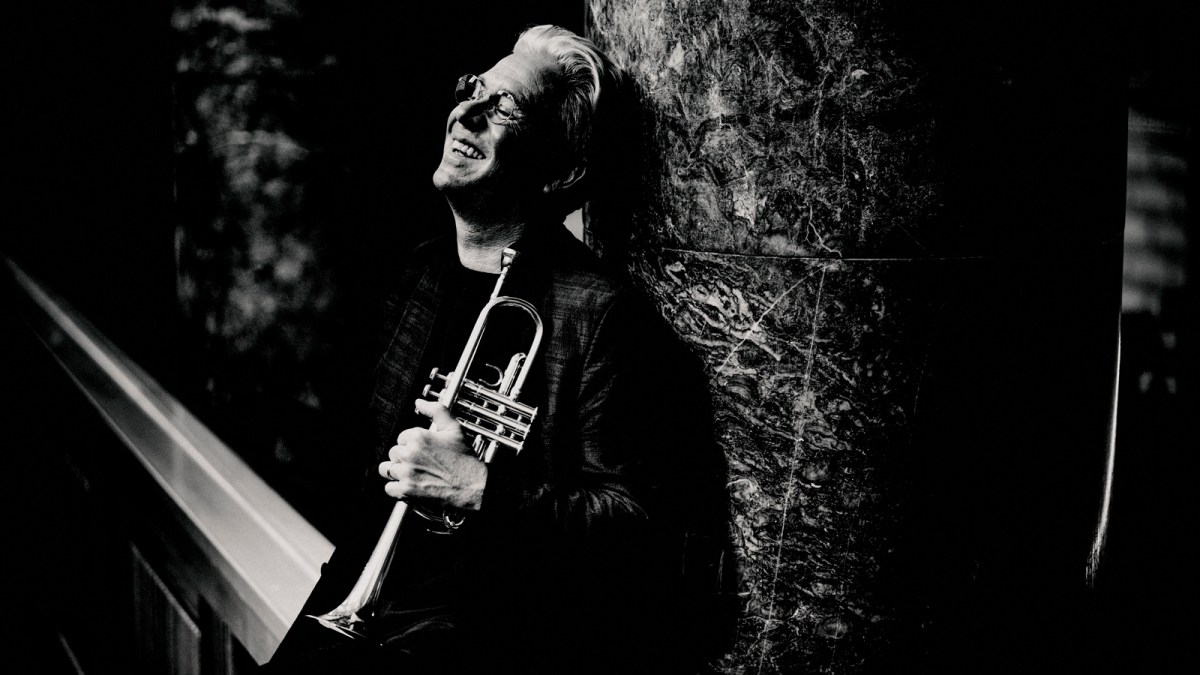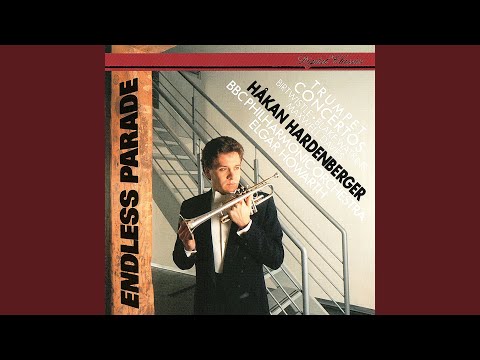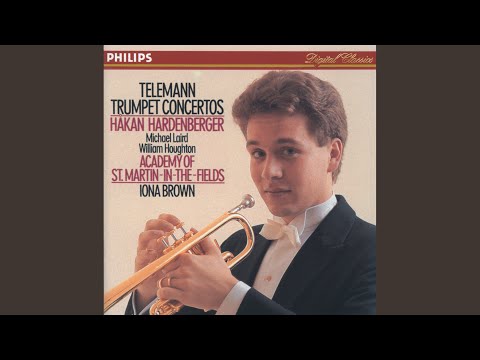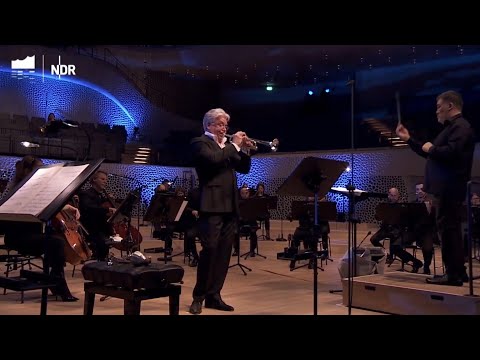On March 18, the trumpet player Håkan Hardenberger celebrated his 60th birthday with a concert with the Swedish Radio Symphony Orchestra, where he performed Brett Dean’s trumpet concerto “Dramatis personae,” and smiled gamely (and sipped champagne) through an encore rendition of the theme from “Superman” in his honor. (Disclosure: As with my recent interview with Daniel Harding, the orchestra covered my flights and hotel for the trip.) I spoke with Hardenberger about the long shadow of Miles Davis, the decline of the recording industry, and why musicians treat him differently when he’s playing than when he’s conducting.
VAN: In the Netflix show “Squid Game” from last year, the beginning of each next round of the extremely brutal “games” is announced by a snippet from the third movement of Haydn’s Trumpet Concerto.
Håkan Hardenberger: Oh, really? [Laughs.] I didn’t know that.
What is your relationship with that piece like now? Do you still enjoy playing it?
I do, it’s good music. Good music has the quality of a never-ending story. But I don’t enjoy it if I have to pull a heavy load behind me: If it’s not well-rehearsed then it becomes tedious. It’s that kind of “Clockwork Orange” torture. [Laughs.]
Does that happen often?
No, not anymore. It did happen at the beginning of my career. Then, there were conductors where the attitude was noticeable: “Oh, it’s just a trumpet, and it’s not to be taken seriously.” There was a bit of that in the beginning.
Why do you think that has changed?
I hope I’ve been part of it in changing it. Conductors like Daniel [Harding] and Andris Nelsons were trumpet players. They’ve been part of my crusades, and they are willing to perform complex, artistically valuable pieces like [Brett Dean’s “Dramatis personae”] with great orchestras. That’s a major change for the instrument.
As a former bad flute player, I know that wind instruments tend to have a fairly limited solo repertoire, and the stuff that is out there can be pretty fluffy, with a lot of fast scales and arpeggios. That makes it important to create new repertoire.
It was very clear that it had to be done. Otherwise, I wouldn’t have spent my life doing it. In the beginning, I saw the limited repertoire as a problem, but then I started to see it as a benefit—it meant that the instrument didn’t have any baggage. There wasn’t a Beethoven concerto, or a Brahms concerto, or even an Alban Berg concerto.
Every composer I approached would see the trumpet differently. The only obstacle in that way was maybe Miles Davis. A lot of musicians have a strong relationship with Miles and felt almost intimidated to write something for the trumpet.
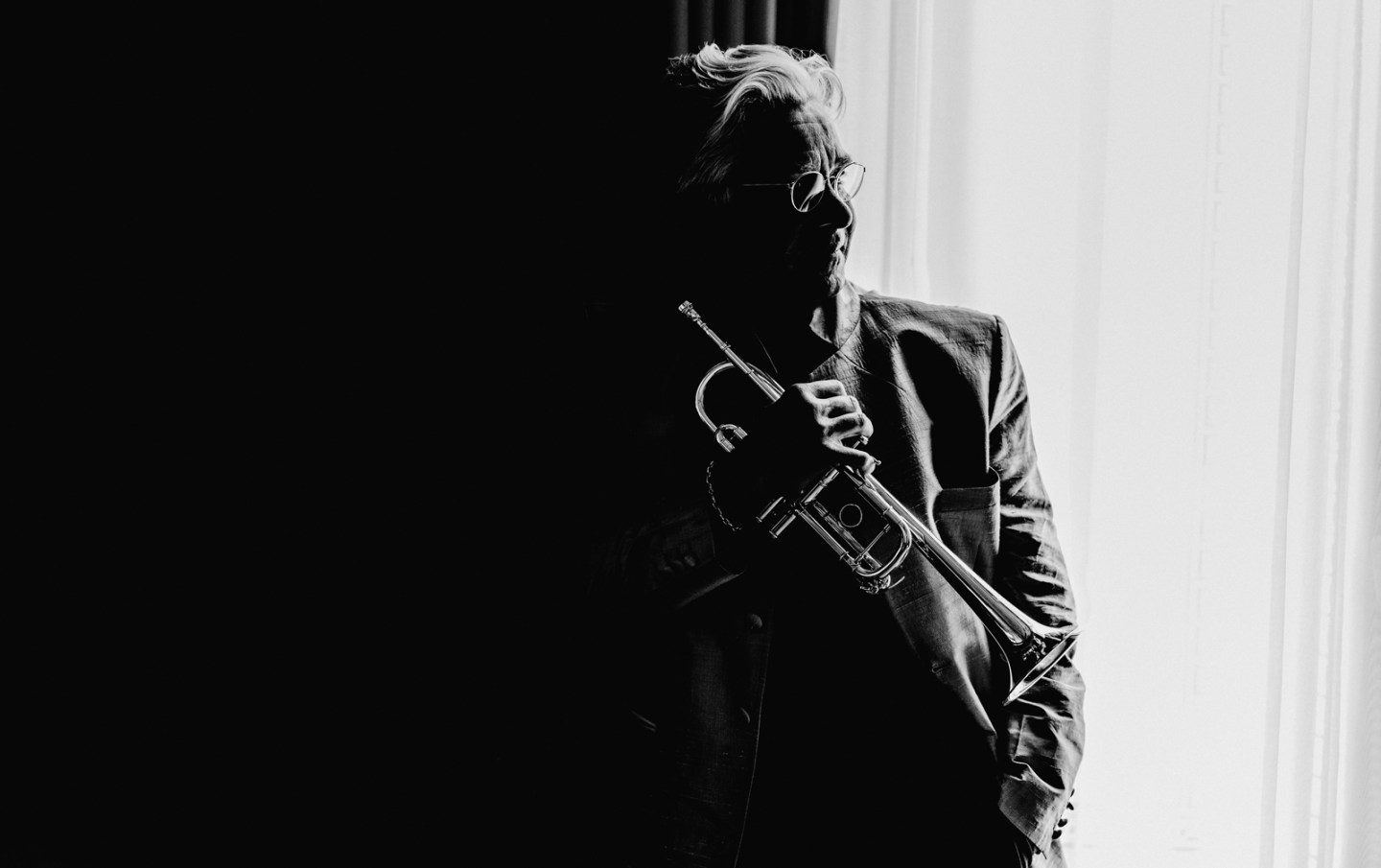
Even classical composers?
Absolutely. Luca Francesconi for instance. For a long time, he said, “No, I can’t. It’ll be too connected to Miles.” And then he ended up writing a piece that was really connected to Miles.
The groundbreaking piece was Harrison Birtwistle’s “Endless Parade” from 1987. I was a young man, and this established, major composer decided to write a solo piece for the instrument: That was huge. [Birtwistle] said, “The trumpet as a chamber music instrument is rubbish. I want it to hit me in the belly like the lead trumpet of Stan Kenton’s big band.” Everybody has different ideas.
The trumpet has this very honest, unforgiving side. It seems to bring out autobiographical works from composers, because you can’t hide with a trumpet. You’re very expressive or very strong; mistakes are obvious. Everybody loves their instrument, but I’d say now—after premiering many, many pieces—that the trumpet brings out this little extra autobiographical aspect from the composers. The trumpet can be overpowering and strong, but there’s also nothing more vulnerable than a trumpet. There’s something so deeply human about it.
In a 2019 interview, you mentioned that you find some streams in contemporary music too “flirtatious.” Which streams did you mean by that?
I’m prepared to put up a fight for the modernists. Next time I’m here [with the Swedish Radio Symphony Orchestra] we’re playing the Birtwistle. He is not flirtatious. [Laughs.] After COVID, you see that a lot of people are anxious to get the audience back at any price. It will be “Eine kleine Nachtmusik” and something that they will call “modern” music, but it’s 10 minutes of a poor excuse. If somebody writes honestly, and there are elements of Michel Legrand or whatever… If it’s real, and I get goosebumps, then it’s fine. But if it’s done out of speculation and vanity… We have to be honest.
I’ve also noticed that much of the post-COVID programming has been very traditional.
It’s a missed opportunity. I can understand why it happens, for sure: People need to make money to be able to do things. But it will be very interesting to see who will be courageous.
In one interview, you mentioned the importance of being able to make recordings as a young musician for the arc of your career. The recording industry has obviously changed a lot since your first CDs. Do you think it would still be possible for a young soloist to build a career by making good recordings today?
I wonder. I feel so much for the ones starting out. They might get recording contracts, but they are told what to do. I’ve also heard terrible stories about companies charging commission on their future concerts. I played baroque music on the modern trumpet at the beginning of my career; that’s gone. You have to go into the early music world for real now. Then what’s left with the trumpet is Haydn. [Laughs.]
Now, young musicians are told that, for their first record, “You have to tell a story.” It’s all about marketability and packaging. I really feel for them. Back in my day, as soon as you signed a recording contract, you got more concert invitations, and then if you played a concert somewhere your picture would be everywhere, even in the butcher shop.
If a young trumpet player comes to you now and says, “I want to be a trumpet soloist. I don’t want to play in an orchestra,” what do you tell them?
I say, “You have to be very good.” Also, they have to be very clear about what they want to achieve. Not the way that the record company thinks of the “story,” but their real ideals: how they want to sound and what they want to do.
The latest from VAN, delivered straight to your inbox
When many conductors perform contemporary music, they often have to sell the piece to the musicians: to convince them that the music is worth putting energy into. Have you had to do that as a soloist too?
Oh God, yes. A lot. It’s less now: things are changing for the better in that respect. These pieces are not like some little Chopin concerto, where you can just go [sings a simple pizzicato accompaniment].
We talk about conservative forces in the music business. Very often the musicians can be the most conservative ones—it’s not just the administrators or the audience. I once asked [the composer HK] Gruber why he always writes five fs. He answered, “Because in the ’60s and ’70s everybody played everything mezzo-forte.”
A conductor can say things to the musicians to create enthusiasm. Can you do that too, or do you have to convey enthusiasm only through your playing?
Yes, I also say things. At the beginning, I was too direct a few times and hurt the conductor’s feelings. With conductors I know, I can speak directly, and otherwise I always ask: “Do you mind if I say something?”
Sometimes, if [the orchestra’s playing] passes the line of decency, I can turn into a bulldozer. Then I don’t care if I hurt people’s feelings. I’ll just say, “No, we have to work on this now.” If at the dress rehearsal a spot is still not fixed, I have to do something.
You’ve also been conducting recently. You said, “The world doesn’t need another Brahms conductor.” Does that mean you’re focusing almost exclusively on new music?
Not only. But I’ve worked with so many composers, and I have the keys to their apartments, so to speak. Also, conductors have the luxury of building programs. You can help the listener a lot. It’s like, How do you put the paintings in an exhibition? In what order, in what light?
It’s a nice process to see an orchestra transform. It’s kind of like a nice watch that needs cleaning. And the moment it clicks, the musicians become generous. It’s a fantastic process to be part of; I don’t want to deprive myself of that.
I don’t know why I should necessarily conduct a Mahler symphony. It takes a lifetime to play the trumpet well, so I’m sure it takes a lifetime to be a good conductor. But it’s not that I don’t do big pieces, I do a program with Takemitsu’s “Paths (In Memoriam Witold Lutosławski),” combined with Lutosławski’s Concerto for Orchestra.
Right, the Concerto for Orchestra is a big, complex piece, but it has a different status in the repertoire as a Mahler symphony.
Yes, of course.
Do you find that the orchestra musicians treat you differently when you’re a soloist than when you’re a conductor?
Yes. As a soloist, you’re still one of them in a way. You’re at least a musician trying. My hometown orchestra, the Malmö Symphony Orchestra, and I inaugurated their new hall in 2015. I was there with a concerto by Mark-Anthony Turnage: Everyone was like, [He makes back-slapping noises and gestures.] A few weeks later I was there to conduct and it was like: [Primly] “Hello.” I love them dearly, but it’s so funny to see how I’m suddenly a threat, someone from the other side.
If I end up conducting Bruckner when I’m 85, that wouldn’t bother me. It will be what it will be. I’ve had a really determined, goal-focused musical life. When I started, I didn’t know that I would still be playing the trumpet well at 60. But I did know that I couldn’t just play golf and drink wine. ¶
Subscribers keep VAN running!
VAN is proud to be an independent classical music magazine thanks to our subscribers. For just over 10 cents a day, you can enjoy unlimited access to over 875 articles in our archives—and get new ones delivered straight to your inbox each week.
Not ready to commit to a full year?
You can test-drive VAN for one month for the price of a coffee.

